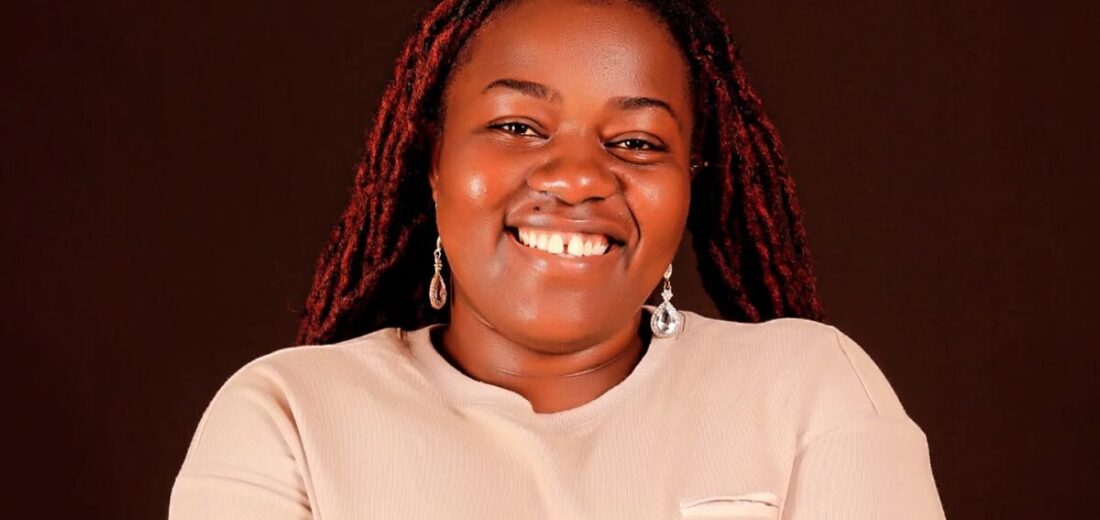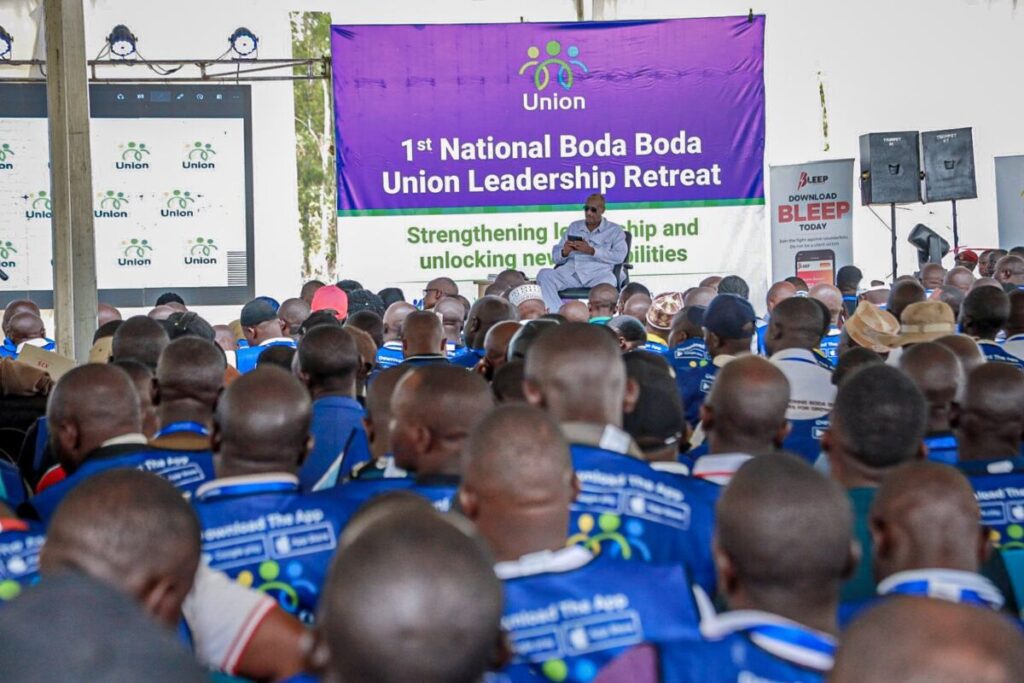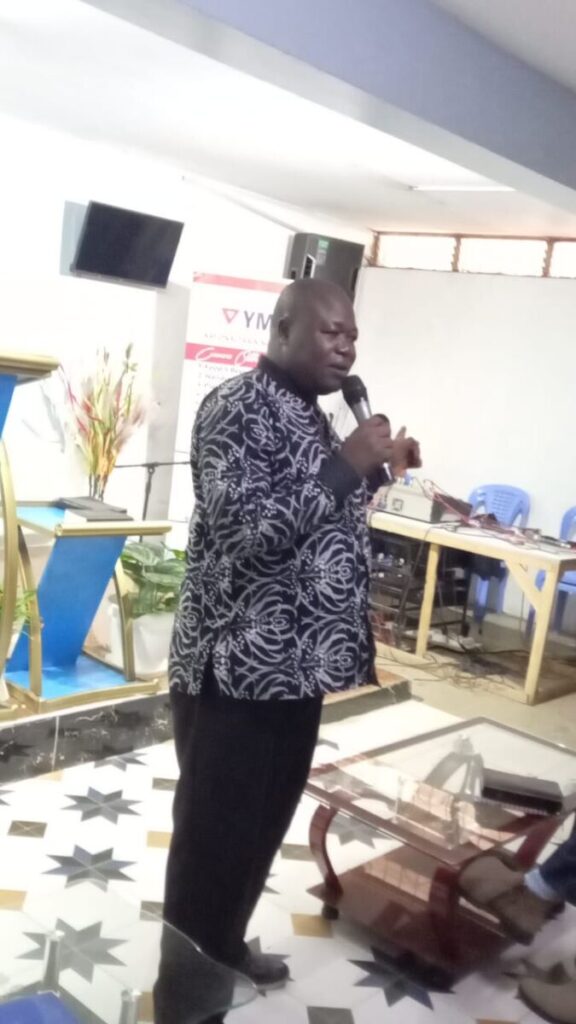
Faith and the Future: How Young Kenyans Are Redefining Religion in Development
For years, religion was treated as a relic in development circles—too emotional, unmeasurable, and divisive. But across the country, a quiet shift is underway. Faith and youth development in Kenya are now deeply connected. Young people are reclaiming belief not as a retreat from reality, but as a resource for rebuilding it. From urban rooftops to rural football pitches, they are blending belief with action. Their message is simple but subversive: faith is not the problem. It is part of the solution.

In 1970, a World Bank report quietly shifted the course of Africa’s development policy. It acknowledged the existence of religious institutions but dismissed them as peripheral players, overlooking their growing relevance in areas like faith and youth development in Kenya, where such institutions have long influenced education, healthcare, and social support.
This sidelining placed faith actors on the margins of development planning, overshadowed by state-led and secular agendas. Yet, in practice, faith-based organisations were already deeply embedded in Kenya’s social fabric, running schools, hospitals, and community projects across the country.
Despite formal neglect by policymakers, faith remains a potent force. In Kenya, where nearly 85 percent of the population identifies with a religion, the role of faith-based organisations (FBOs) is far from ceremonial.
Among the youth, these institutions are evolving from places of worship into platforms for training, mentorship, entrepreneurship, civic engagement, and psychosocial support. Across Kenya, youth are engaging with faith, not just spiritually but developmentally, reshaping the traditional intersections between religion and national progress.
Sharleen Mbereshia, a youth leader at Christ Co-Workers (Chrisco), Donholm Fellowship, embodies this new understanding of religion’s role. For her, faith is not an abstract doctrine but a lived experience that offers both spiritual grounding and practical tools for life.
‘Christ is the best thing that ever happened to me,’ she says. ‘I strongly believe that Jesus died for my sins and rose again. I am filled with the Holy Spirit who was given to believers as a helper and comforter.’
Chrisco, like many churches in Kenya, does not limit itself to Sunday sermons. The ministry organises youth camps and retreats that address critical societal topics like entrepreneurship, digital innovation, emotional health, and financial literacy.
‘We talk about business and investments because young people need to be equipped for the real world,’ Mbereshia explains, adding that religion plays a pivotal role in shaping the future of a country.
The spiritual component, according to Mbereshia, goes hand-in-hand with civic action. At one of the church youth retreats, she says they invited an entrepreneur coach and a mental health advocate to speak to the youth. ‘We learned how to start small, with little capital and how to manage stress in the digital age.’

Though she has not formally worked with youth from other religions, she remains open-minded. ‘Apart from differences in belief, most are genuinely good people,’ she says. ‘We need unity more than ever, especially now that our country is dealing with unemployment, depression, and identity loss among the youth. Faith institutions can be bridges, not walls.’
Salim Yusuf, a Muslim entrepreneur operating a computer accessories shop in Nairobi’s CBD, shares this sentiment. To him, faith is not a restriction but a life compass. ‘Islam has been a grounding force for me, not in a rigid way but as a guide during confusing times,’ he says.
Raised in a practising Muslim home, Salim’s faith intensified during personal and financial hardships. ‘I was out of school for two years. We could not afford the fees. During that time, my prayers became more consistent. I found peace even when there was nothing else.’
Yusuf carries a verse from the Qur’an close to his heart: ‘And whoever puts their trust in Allah, He is sufficient for them’ (Surah At-Talaq 65:3). ‘This verse has taught me not just to believe in something bigger than myself, but to act with calm and dignity even in crisis,’ he says. That belief has shaped how he relates to others, especially those struggling or overlooked.
But he is also candid about the limitations within his faith community. ‘I have seen young people pushed away from mosques because they ask difficult questions or look different. Faith leaders often avoid topics like youth unemployment, mental health, and corruption. They focus only on outward behaviour.’
Salim believes Islam, as taught by Prophet Muhammad, is about real-world transformation. ‘Our Prophet empowered the youth. He addressed injustice, health, and wealth distribution. That is the Islam I know. If mosques embraced mentorship, skills training, and civic education, we would be seeing a different Kenya already,’ he notes.
He has since joined a peer-led Muslim youth mentorship group that meets every two weeks to discuss Quranic values, job searching, and social action. ‘We do not wait for imams to guide us. We support one another and occasionally bring guests; from financial experts to bodaboda union leaders. We learn, grow, and help others.’

That hunger for transformation is echoed by Dr Titus Okoyo, principal of the National Training Institute under the Young Men’s Christian Association (YMCA) in Shauri Moyo, Nairobi. He believes faith should be seen as a force for moral grounding and social regeneration. ‘Faith is not just doctrine, it is motivation,’ he says, adding that at the YMCA, faith gives young people hope and resilience to navigate life’s challenges.
The institution offers a range of programmes, from vocational training to mentorship, that blend spiritual support with practical skill-building. Dr Okoyo has seen this approach help youth in crisis find direction. ‘I have seen spiritual encouragement help young people dream again and lead change.’ He notes that they have had boys from informal settlements graduate in electrical installation and go on to open small workshops. Some come back to train others.
But he is also realistic. He admits that there is a real shortage of resources. ‘Donors are increasingly cautious about mixing faith with development. However, we are seeing young people take initiative, leading faith-inspired startups and community projects. There is a growing spirit of collaboration.’
Having worked extensively within Nairobi’s urban communities, especially in Shauri Moyo and Nairobi Eastlands, Dr Okoyo is acutely aware of the structural obstacles young people face, including drug dependency, school dropout, and joblessness.
Under his leadership, the National Training Institute has repositioned its Christian identity not as a badge but as a catalyst. It runs targeted programmes in carpentry, electrical installation, welding, and hairdressing for youth who never completed formal schooling. This is a clear example of how faith and youth development in Kenya intersect—not through preaching, but through service, structure, and opportunity.
His model draws heavily from his experience in Eldoret, where post-election violence fractured community trust. There, Christian and Muslim youth were brought together for civic education forums that led to collaborative action, including clean-up drives, peer mentorship, and voter education.
These were not interfaith events for public relations, they were designed to rebuild trust, restore dignity, and reconnect communities. ‘Faith institutions must do more than pray. They must engage,’ he says. ‘When we worked with both churches and mosques in Eldoret, we saw ex-rivals become community leaders.’
At the same time, a quiet but powerful shift is unfolding in rural and peri-urban spaces. In Nyamira County, a youth-led interdenominational group called ‘Faith in Motion’ hosts monthly mentorship clinics where religious leaders, business professionals, and former school dropouts share life skills and survival stories.

The sessions incorporate Bible study, prayer, and goal-setting workshops. ‘We mix scripture with strategy,’ says Metrine Kemunto, a 22-year-old coordinator. ‘Youth do not just want to be preached at; they want to be empowered.’
In Eldoret, a similar project has emerged among Seventh-Day Adventist youth, who have started a Sabbath-based health caravan. Every last Saturday of the month, they visit rural communities to offer free medical check-ups, mental health talks, and distribute food parcels.
Social media has become a powerful extension of these youth movements. TikTok and Instagram are now filled with Kenyan content creators who blend faith, creativity, and social commentary. One rising channel, ‘Faith Plug KE,’ features Christian skits about peer pressure, drug abuse, and academic pressure, often ending with scripture-based reflections. These formats are drawing thousands of views from youth who may not attend church but still crave spiritual relevance.
Some of these digital influencers are now collaborating with traditional religious institutions. A few churches in Nairobi have begun hosting ‘content creator fellowships,’ where faith-based influencers gather to share ideas, pray, and film. ‘We want to turn timelines into testimonies,’ says Angie Naliaka, a gospel lifestyle blogger and poet.
This hybrid approach is shifting how religion is lived and shared. Faith is no longer bound to pulpits or traditional outreach. It is mobile, visual, interactive, and deeply contextual. Young people are at the forefront of this shift, leading with conviction, courage, and creativity.
In Bungoma County, a different spiritual voice is also contributing to this narrative. Johnson Waredi, widely known as Ras Redi, is a young Rastafarian community organiser and herbalist who works with youth on cultural identity, entrepreneurship, and environmental conservation. For him, faith is deeply spiritual, but also profoundly African. ‘Rastafari is about livity, living in balance with the Most High, with nature and with people,’ he explains. ‘It is not just dreadlocks and reggae music. It is how you eat, speak, treat the Earth, and treat others.’
Each week in Bungoma town, Ras Redi hosts ‘Reasoning Sessions’ where youth gather to discuss everything from repatriation and Black consciousness to business ideas, farming practices, and drug awareness. These sessions reflect how faith and youth development in Kenya can merge, as he blends scripture—primarily the Bible and teachings of Haile Selassie—with African proverbs, Nyabinghi chants, and local knowledge.
‘The government does not reach us, the donors do not see us, but the Most High empowers us,’ he says. Redi notes that they grow their own food, teach the youths skills, and build dignity. ‘That is development, bredren,’ he quips.
Asked whether he considers himself part of the faith-based development movement, Ras Redi chuckles. ‘They may not invite me to those policy tables, but we are on the ground. We reach the youths every day. We turn ghetto youths into conscious men and empresses. We help them stop depending on the Babylon system.’
He believes that ignoring Rastafari in national conversations on religion is a form of systemic erasure. ‘They say faith-based, but they mean church-based. They do not know our livity builds self-reliance and respect for culture. That is the African spirit.’
His challenge to national policy is, ‘If development only comes with suits and titles, it is not true development.’ He challenges the system to learn from the roots. He regularly partners with traditional herbalists, musicians, local elders, and change-makers in his community to host tree-planting events, river clean-ups, and mental health talks.
David Sebit, a South Sudanese and one of the elders in Chrisco, believes that modern youth are shaping a different kind of faith, but he urges caution. ‘Faith unites people regardless of tribe,’ he says. ‘But today’s youth think faith and tradition can be modernised, which is not true. We must teach respect, unity, and fear of God.’

Development without discipline, according to Mr Sebit, is hollow. He has seen love and unity among believers and urges young people to distinguish between cultural evolution and spiritual dilution.
The shifting role of faith in youth development is also becoming evident in digital spaces. Several Kenyan youth are now running faith-based podcasts and YouTube channels that fuse spiritual teaching with conversations on mental health, entrepreneurship, environmental justice, and relationships.
“A Nairobi-based podcast called ‘Faith & Hustle’ recently featured an episode on ethical business in Kenya’s gig economy, showing how faith and youth development in Kenya intersect through conversations that link spirituality with professional ethics.”
In Kisumu County, a campus-based interfaith youth coalition called Kisumu Faith Action Lab is bringing together Christian, Muslim, and traditional African spirituality advocates to collaborate on climate awareness campaigns.
One of their recent projects involved mapping illegal dumpsites near Lake Victoria and advocating for community waste management using faith-led dialogue forums. ‘We pray together, clean together and write policy briefs together,’ says Janet Achieng, a climate justice advocate and university student at Great Lakes University. ‘Faith is our common ground.’
Collectively, these stories show that faith among young Kenyans is no longer confined to rituals or places of worship. It is shaping how they organise communities, earn a living, care for the environment, and care for each other. While national policy still often sidelines religion in the name of neutrality, young people are using their beliefs not as a retreat from modern life but as a firm base to face its challenges.
Whether it is through a computer shop in Nairobi, a vocational centre in Shauri Moyo, a church camp in Kisii, a reasoning circle under a tree in Bungoma, a podcast in Eldoret, or a cleanup drive in Kisumu, faith is being repurposed to meet the demands of the 21st century.
In a country where political promises often fall short and economic inequality runs deep, the enduring presence of faith and youth development in Kenya cannot be ignored. It challenges the outdated binary that separates religion from development, showing that belief systems can drive meaningful, youth-led progress.
For this generation, faith is not an obstacle or an excuse, it is a source of energy, integrity, and hope. And in their hands, it might just become one of the most authentic and transformative tools for nation-building Kenya has yet to see.

Leave a Reply